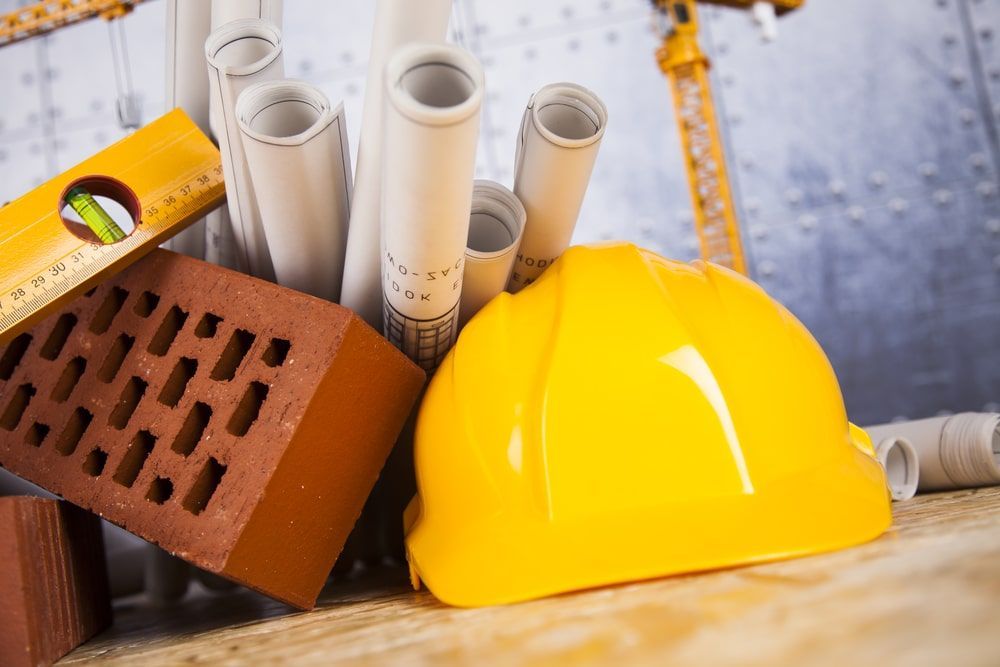Can a contractor cancel a permit in Florida?
Updated: March 2024

Pulling a Construction Permit in Florida
It starts innocently enough. A business colleague approaches you and offers an arrangement to pay you a “fee” for each permit you pull for various projects on behalf of the business. This is extra money on the side and sounds like a great deal, right?
This scenario is very common and can put your license and your business at risk. Just don’t do it. It is important to remember that as a contractor, you will be assuming the responsibility for the supervision and financial liability for the project which is putting your license on the line should something go wrong.
The Florida Legislature enacted Chapter 489 of the Florida Statutes with the intent to protect public health, safety, and welfare by requiring that all construction projects be performed by licensed contractors. Construction work must be completed by a licensed professional to ensure that structures are built safely and efficiently.
Pursuant to Chapter 489, contractors are prohibited from “renting” their license to others and is considered “aiding and abetting unlicensed contractors”. Violations can open the contractor up to disciplinary action and criminal prosecution. The first offense is classified as a misdemeanor, and a second offense is a felony. The Construction Industry Licensing Board can also level numerous additional violations against you.
The penalties for violating Chapter 489 can include fines and costs exceeding $10,000, probation, license suspension, and/or revocation.
What does “Pulling a Permit” Mean?
“Pulling a permit” in Florida construction litigation refers to the process of applying for and securing a building permit for a project. Initially, it may have involved physically retrieving paperwork, but now it’s often done online.
What are the Benefits of Pulling a Permit in Florida?
are you aware of the significant financial risks and potential damage to your business when bypassing regulations by commencing construction projects without proper building permits? While obtaining permits may seem time-consuming and cumbersome, they signal to customers your commitment to responsible practices and adherence to local building codes.
To guide your business decisions, learn more about the following benefits of acquiring building permits and the importance of consistently pulling permits for your projects.
- Ensures Safety : Obtaining a building permit is the first step in ensuring that construction projects adhere to safety standards and regulations. It helps minimize liabilities by ensuring that the structure is built safely, reducing the risk of accidents or hazards during and after construction.
- Helps with Property Sales : Having proper building permits in place is crucial when selling a property. Prospective buyers often request to see permits and certificates of occupancy for any construction work done on the property. Having these permits readily available can streamline the sales process and prevent delays or complications.
- Assists with Obtaining Financing : Many lenders require evidence of building permits for construction projects before approving financing or loans. Whether it’s for construction loans or refinancing, having permits in place provides assurance to lenders that the project is compliant with regulations, increasing the likelihood of loan approval.
- Demonstrates Professionalism : Pulling building permits showcases professionalism and commitment to quality workmanship. It signals to clients that the contractor operates within the bounds of the law and is dedicated to delivering high-quality results while adhering to regulatory standards.
- Reflects Ethical Principles : Intentionally avoiding or bypassing the permit process implies an unethical approach to business practices. Pulling permits when required demonstrates integrity and a commitment to ethical conduct, fostering trust and confidence among clients and stakeholders.
- Shows Care for Customers : Pulling permits is a tangible way to demonstrate care and consideration for customers’ interests and investments. It assures clients that the contractor is taking the necessary steps to ensure compliance with regulations, safety, and quality standards, ultimately enhancing customer satisfaction.
- Enhances Credibility and Reputation : Operating with proper permits enhances a contractor’s credibility and reputation within the community and industry. It signifies professionalism, reliability, and a commitment to upholding standards, leading to positive word-of-mouth referrals and repeat business.
- Maintains Good Standing with Jurisdiction : Regularly pulling permits and adhering to regulatory requirements help contractors maintain a positive relationship with local authorities and building departments. It ensures compliance with jurisdictional regulations and fosters cooperation, which can be beneficial for future projects and approvals.
- Facilitates Inspection and Certificate of Occupancy : Building permits facilitate jurisdictional inspections throughout the construction process, ensuring that work meets regulatory standards. Obtaining a Certificate of Occupancy (CO) upon project completion requires compliance with permit requirements, affirming the project’s safety and legality.
- Ensures Compliance with Building Codes and Regulations : Pulling permits demonstrates a commitment to compliance with local building codes and regulations. It ensures that construction projects meet safety, structural, and zoning requirements, minimizing the risk of fines, penalties, or legal issues down the line.
By understanding and leveraging these benefits, contractors can navigate regulations effectively and enhance their business practices. Contacting knowledgeable construction attorneys, Bennett Legal Group, can assist in the process of pulling a permit.
What Can You Do Instead of Pulling a Permit?
If you are approached with this scenario, there are other options. One alternative is to become a qualifying agent of the business. In order to do this, you will need to complete a list of procedures outlined in Section 489.119(2), which includes the requirement that you become a W-2 employee or a 20% shareholder of the business.
It is important to note that a qualifier is not only expected to supervise work but is also required to be responsible for the financial affairs of the company (not just the project in question). As a qualifier, you are agreeing to become responsible for the business as well as supervision of each project. This means that your reputation is on the line, and you will ultimately be responsible for any damages, defects or injuries that could result.
Another option is to have the unlicensed contractor cancel their contract and have the client contract directly with you instead.
Borrowing or renting licenses has gone on for many years, and can often have disastrous results. What initially appears to be a simple transaction can snowball into a major expense, liability, and ultimately can cost you your license.
If you have a construction and or professional licensing-related legal issue, please contact us. We will ensure your rights are protected at every stage of the process. BLG Partner Michelle B. Kane was appointed by Florida’s Governor as a Board Member on the Construction Industry Licensing Board for eleven years and served as past Chairman of the Board and is here to help. Call us today at 407-734-4559.
The post Can a contractor cancel a permit in Florida? appeared first on Bennett Legal Group, P.A..










Our Office
850 Concourse Parkway South, Suite 100
Maitland, Florida 32751
Contact Us
We will get back to you as soon as possible.
Please try again later.
Privacy Policy | Terms of Use | Powered by Levitate







